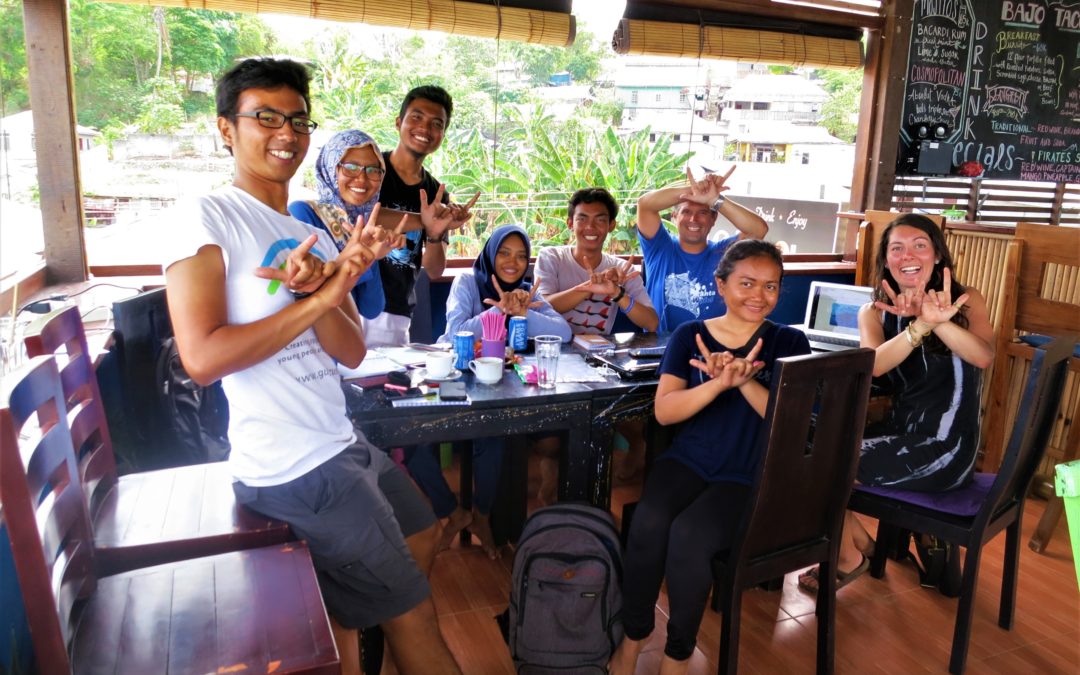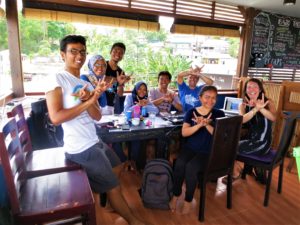No mantas or surveys today, as we spent the day in the classroom. But this was still one of the most exciting days of MIP-2016, as we welcomed a new guest speaker to share information about conservation impact and career development. Ms Hollie Booth is the Regional Shark and Ray Advisor for the Wildlife Conservation Society.
Hollie recently evaluated the impact of Indonesia’s manta ray fishing ban with Imperial College, London and the Wildlife Conservation Society, and this was the topic of her first session this morning. Hollie explained to the interns how she approached this research and tackled research challenges such as incomplete and mismatched data. For the interns, this was a very good opportunity to explore a real example of conservation impact evaluation, and to discuss how to design conservation projects to incorporate controls, counterfactuals and impact measures. It was also a chance to learn about the mechanisms behind international agreements such as CITES and international wildlife trade.
The Government of Indonesia declared manta rays as a protected species in 2014. Hollie’s research focussed on developing the first framework for monitoring illegal manta ray catch and trade in a source country and assessing the impact of wildlife trade regulations. Her results suggest that the regulation is having an impact, but the nature and magnitude of the impact remain unclear. Implementing, monitoring and evaluating wildlife trade regulations can be challenging in dynamic, complex, real-word situations. Monitoring and evaluation of wildlife trade policy could benefit from more strategic and integrated data collection systems.
Hollie has previously worked with many prestigious conservation organisations around the world, including UNEP-WCMC and Cambridge University. During the afternoon’s classroom session, Hollie used this experience to discuss career development with the interns, including how to create an effective CV, how to respond to recruitment adverts, and how to identify personal strengths and weaknesses. This was a very interesting and valuable exercise for the interns, who are all at the very start of the careers. Learning how to tailor a CV to the job description, and how best to highlight experience during the early stages of a career will be useful skills.
We covered a lot of ground today, from evaluating global biodiversity agreements and mechanisms to evaluating personal competencies and skills. We all learned a lot from Hollie, and the interns established a useful connection with the Wildlife Conservation Society’s developing regional sharks and rays program.



